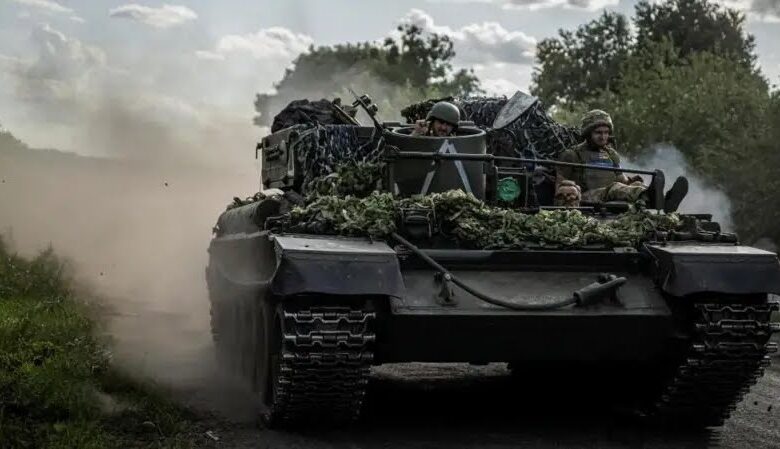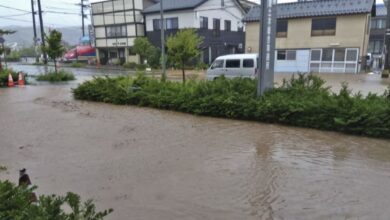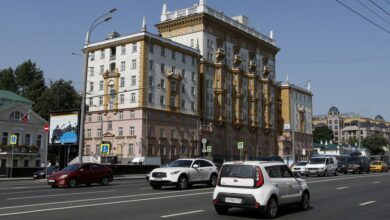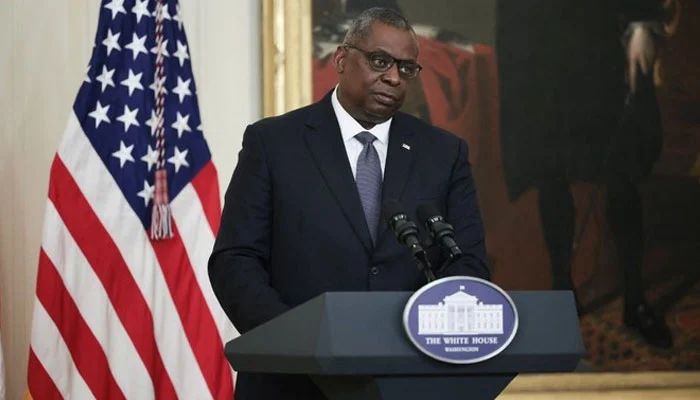As Russia Advances, U.S. Fears Ukraine Has Entered a Grim Phase

Weapons supplies are no longer Ukraine’s main disadvantage, American military officials say.
American military and intelligence officials have concluded that the war in Ukraine is no longer a stalemate as Russia makes steady gains, and the sense of pessimism in Kyiv and Washington is deepening.
The dip in morale and questions about whether American support will continue pose their own threat to Ukraine’s war effort. Ukraine is losing territory in the east, and its forces inside Russia have been partially pushed back.
The Ukrainian military is struggling to recruit soldiers and equip new units. The number of its soldiers killed in action, about 57,000, is half of Russia’s losses but still significant for the much smaller country.
Russia’s shortages of soldiers and supplies have also grown worse, Western officials and other experts said. And its gains in the war have come at great cost.
If U.S. support for Ukraine remains strong until next summer, Kyiv could have an opportunity to take advantage of Russia’s weaknesses and expected shortfalls in soldiers and tanks, American officials say.
U.S. government analysts concluded this summer that Russia was unlikely to make significant gains in Ukraine in the coming months, as its poorly trained forces struggled to break through Ukrainian defenses. But that assessment proved wrong.
Russian troops have advanced in the Donbas region of eastern Ukraine. They have clawed back more than a third of the territory that Ukrainian forces seized in a surprise offensive in the Kursk region of western Russia this year. The number of Russian drone strikes across Ukraine has increased from 350 in July to 750 in August and 1,500 in September.
“The situation is tense,” said a Ukrainian major stationed on the Ukrainian side of the border near Kursk who goes by the call sign Grizzly. “We are constantly losing previously occupied positions, the enemy has an advantage in men and artillery, and we are trying to hold the line.”
Gone is the Russian force that repeatedly stumbled as it invaded Ukraine in 2022. The Russian military, according to a senior U.S. military official, has evolved and is “on the march.”
As a result, some American intelligence agencies and military officials are pessimistic about Ukraine’s ability to stop Russian advances as Kyiv tries to find ways to build up forces exhausted by nearly three years of war.
Still, Russia has fallen short of its own goals. Most notably, it has not been able to take the city of Pokrovsk, a logistics hub for Ukrainian forces. And independent experts say Russia’s shortages of radar, armored vehicles and, most critically, troops will come to a head next year.
The most important immediate development for Ukraine, however, will not be on the battlefield but at the ballot box in the United States. Former President Donald J. Trump and Vice President Kamala Harris have laid out very different visions for future American support.

Mr. Trump has promised to bring the war to a quick end, and his running mate, Senator JD Vance, has outlined a peace plan that looks a lot like one advanced by President Vladimir V. Putin of Russia.
Ms. Harris, on the other hand, has vowed to fight on, warning that if Russia was not stopped in Ukraine, its forces could attack NATO.
The election, and its uncertain outcome, is weighing heavily on Ukrainians.
After a meeting with President Volodymyr Zelensky in Kyiv last week, American officials said the Ukrainian leader looked worn and stressed, anxious about his troops’ battlefield setbacks as well as the U.S. elections.
“It’s a very tough fight, and it’s a tough slog,” Defense Secretary Lloyd J. Austin III told reporters traveling with him to Ukraine last week.
In Ukraine, morale is eroding in the face of the Russian drive and a fear that Western support and the flow of supplies are coming to an end.
“It is very difficult at the front now,” said Yevhen Strokan, a senior lieutenant and commander of a combat drone platoon in the 206th Territorial Defense Battalion. “There is a lack of everything, there are few people, there are more Russians and they have more weapons.”
The pessimism extends to Western capitals.
“Everyone is feeling bad across the board,” said Frederick W. Kagan, a scholar with the American Enterprise Institute who has advised the U.S. military. “It has been a very long, hard year and the Russians are still grinding forward.”
But Russia, Dr. Kagan said, is trying to suggest its victory is as inevitable as it was in World War II.
“The Russians would like you to believe this is 1944 on the eastern front,” he said. “It isn’t.”
Ukraine’s Problems

Earlier this year, Ukrainian troops were struggling with shortages of ammunition supplies amid U.S. delays in approving more assistance.
Even after Congress approved more aid in April, Ukrainian officials have complained that the arms flowed too slowly, making it hard to resupply the front lines.
“This is the rule of the war,” Mr. Zelensky said this week. “Because you have to count on very specific things in very concrete time, otherwise you can’t manage this situation, you cannot manage defending lines, you can’t secure people, you can’t prepare for the winter.”
On Tuesday, Jake Sullivan, President Biden’s national security adviser, and Andriy Yermak, a top adviser to Mr. Zelensky, met for two hours in Washington. They discussed the Biden administration’s plans to speed artillery systems, armored vehicles and air defense ammunition to Ukraine before the end of the year.
But American military officials say weapons supplies are no longer Ukraine’s main disadvantage.
Ukraine has sharply narrowed Russia’s artillery advantage, U.S. officials said, and Ukrainian soldiers have used explosive drones to lay waste to Russian armored vehicles.
Ukraine’s biggest shortcoming now is troops, U.S. officials said.
Ukrainian officials have struggled to put in place a military draft that brings in enough troops. The country has hesitated to lower the conscription age, worried about the long-term demographic impact. Ukraine has limited itself to what one official called a more “democratic and measured” response to the shortage of troops, but as a result it is running low on soldiers.
NEW YORK





